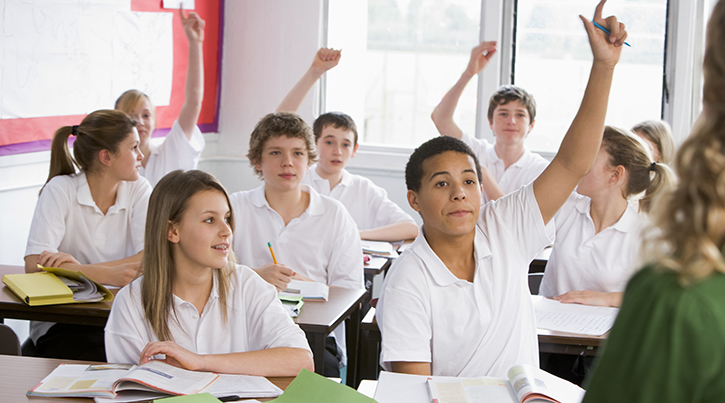‘Pupil voice’ benefits pupils and helps schools to improve

In these schools:
• pupil participation is integral to the school’s vision and ethos;
• there are clear structures in place to capture pupils’ views;
• pupils have a range of opportunities to influence decisions which affect them; and
• staff and pupils have access to good quality training to help them develop the skills needed to make pupils’ voices heard
Estyn’s report, ‘Pupil Participation: a best practice guide’, highlights how effective participation benefits pupils and helps schools to improve. The report includes seven case studies of good practice to help all schools improve their pupil participation.
Meilyr Rowlands, Chief Inspector, says:
“A strong pupil voice has clear benefits for both schools and learners. I urge all schools to read the good practice found in this report to help them improve the impact of making pupils’ voices heard.”
According to the report, strong pupil participation can support school improvement by helping the school to identify future priorities and make more informed decisions on wellbeing, learning experiences and the quality of teaching. Through their involvement, pupils develop valuable personal and social skills such as listening skills and working with others.
The report highlights the good practice at Hafod Primary School in Swansea, where all pupils have regular opportunities to influence school decision-making. Every week, a pupil voice group takes suggestion boxes around the school in advance of a weekly ‘golden assembly’ where the group feed back to the rest of the school. As a result, pupils are confident the school listens to their views and they have developed self-confidence, self-esteem and listening skills.
Notes to Editors:
About the report
• Estyn’s report ‘Pupil Participation: a best practice guide’ was commissioned by the Welsh Assembly Government and is available in full at https://www.estyn.gov.wales/thematic-reports
• The findings of the report are based on the analysis of findings from inspections and follow up telephone interviews where good practice in pupil participation has been identified. The report draws on analysis of fifteen primary school inspections, five secondary school inspections and four special school inspections. Nine schools were followed up by a telephone interview. The sample draws on practices from all four regional consortia and takes account of socio-economic background, size of school and linguistic contexts. The report also takes into consideration guidance and good practice publications by the Welsh Government and The Children’s Commissioner for Wales.
Case studies of pupil participation
• Heronsbridge Special School, Bridgend
• Ysgol Uwchradd Aberteifi, Ceredigion
• Ysgol Gynradd Llanllechid, Gwynedd
• Wolfscastle Community Primary School, Pembrokeshire
• Ysgol Penmaes, Powys
• Hafod Primary School, Swansea
• Cefn Hengoed Community School, Swansea